The Freedom Caucus—the conservative House Republican rebels who drove Speaker John Boehner to quit and forced his most likely successor out of the race—has a nightmare scenario on its hands. It isn’t that Boehner stays on as Speaker, or that Paul Ryan or even would-be Speaker Kevin McCarthy ends up replacing him. It’s that establishment Republicans could soon use the conservatives’ own tactics against them.
The caucus of about three-dozen members has caused chaos on Capitol Hill in recent weeks, forcing Boehner’s retirement and bringing down the candidacy of his heir, House Majority Leader McCarthy. But as every one in Washington holds their breath to see if Ryan tries to pursue the job he’s told everyone he doesn’t want—and with some conservatives like Sen. Ted Cruz questioning if Ryan is even one of them—it’s worth noting what the other wing of the Republican Party is up to.
Don’t call them “moderates,” because in any other caucus they’d be conservative. So let’s call the 56-member coalition known as the Tuesday Group “pragmatists”—or, for lack of a better word, the establishment. Just about the only thing that the establishment and the Freedom Caucus agree upon is that something’s got to change. “Whoever is the next Speaker, if he or she chooses path of appeasement of rejectionist wing of the party, we’ll be stuck on path of paralysis and speaker will be ineffective,” says Rep. Charlie Dent, a Pennsylvania Republican who chairs the Tuesday Group. “We have to change the underlying governing dynamic going forward.”
To make his point, Dent and his colleagues signed on to a bipartisan petition earlier this month to reauthorize the obscure Export-Import Bank over the objections of the Freedom Caucus. Dent notes that any real governing—the passage of Senate-brokered compromises usually opposed by the conservative insurgents—will have to go through his group working with Democrats. “[Ryan] understands the circumstances he faces,” Dent says. “He clearly understands that he’s going to have to move some important legislation as speaker—the debt ceiling, an omnibus—and if does those things he’ll be sniped out from his right flank.”
This is the same box that Boehner and McCarthy faced and punted on: whether to turn the conference to the left to avoid catastrophes for the Republican Party like shutting down the government or defaulting on the nation’s debt, or stick to a right-wing course at a time when outsiders like Donald Trump, Ben Carson and Carly Fiorina are dominating the presidential election.
“Conservatives are simply asking leadership to make good on their campaign promises, but it’s moderates who are joining with liberal Democrats to resurrect the cronyist Export-Import Bank that subsidizes privileged corporations,” says former South Carolina Sen. Jim DeMint, who now heads The Heritage Foundation. “The current majorities were elected on promises to stop amnesty and fight for full repeal of Obamacare, and the next Speaker needs to lay out an agenda that ends favoritism toward special interests and provides opportunity to all Americans.”
The problem is, the leaders were never going to make good on their campaign promises: They don’t control the White House or a big enough majority in the Senate to deliver. So, in frustration, the Freedom Caucus has gone after the system itself, particularly its leaders. “Disorder and chaos are not the traditional conservative vales,” scoffs Dent. “The rejectionist arm of the party seems to have a problem with James Madison and the system [of checks and balances] that he devised.”
Dent essentially argues that two can play the game of disruption the Freedom Caucus has devised. If it only takes 30 votes for a Republican to lose a floor vote for Speaker (the GOP majority of 247 minus 30 is 217, below the 218 needed to pass a motion), those votes can be found elsewhere if need be. “If there are somewhere between 30 and 50 Republican members who say they won’t vote for the choice of the majority of Republicans for speaker, well then yes, the Democrats will have an impact and influence on who will be the next speaker if there aren’t 217 votes on the House floor,” Dent says. “I would prefer we elect a Speaker on majority-Republican votes on the House floor. I’m just not sure that’s possible.”
But the Freedom Caucus has bigger worries than competing voting blocs: The establishment is taking another page from its playbook by going after them in primaries. One of the demands of the Freedom Caucus is that the leadership and allied groups not run ads against them when they buck the system. “We’re asking for assurances that the next Speaker or any of his allies, including the Chamber of Commerce and the American Action Network, will not run ads against us as has happened over the last six months to many of us,” says Rep. David Brat, who defeated former House Majority Leader Eric Cantor in his Virginia primary last year.
Many have asked for support from the National Congressional Campaign Committee, which works to elect Republicans to the House. But given that Freedom Caucus districts lean strongly Republican, there’s little chance that those members will receive NRCC funds, which tend to go to more competitive swing districts.
Whoever becomes the next Speaker has his or her work cut out for them in managing a party engaged in a low-grade civil war. On the legislative, procedural and electoral fronts, the two wings of the party are vying for dominance. And to lead one is, by definition, to be against the other.
Who can lead both?
Photos: 6 Congressional Leaders Who Resigned Over Scandals
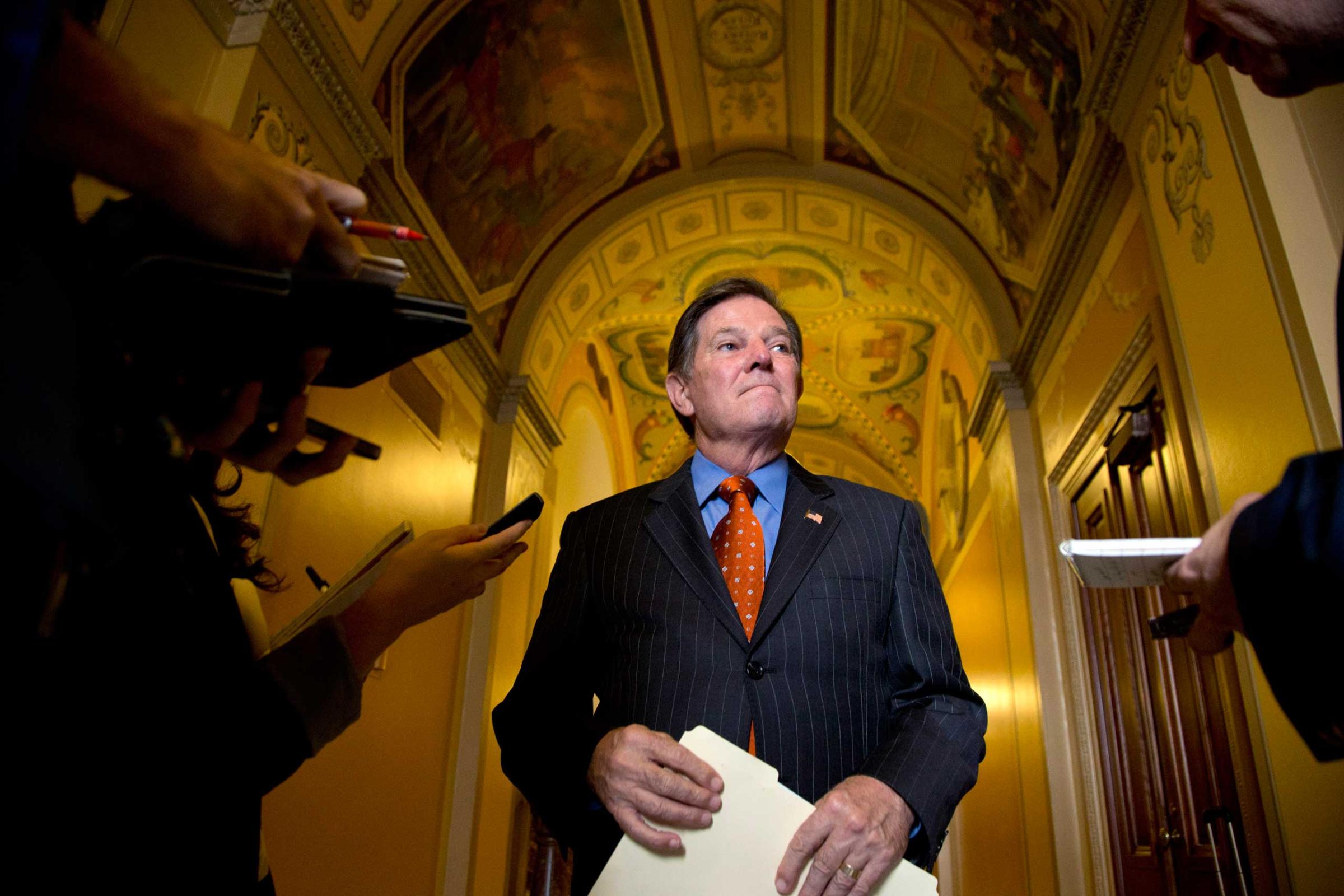
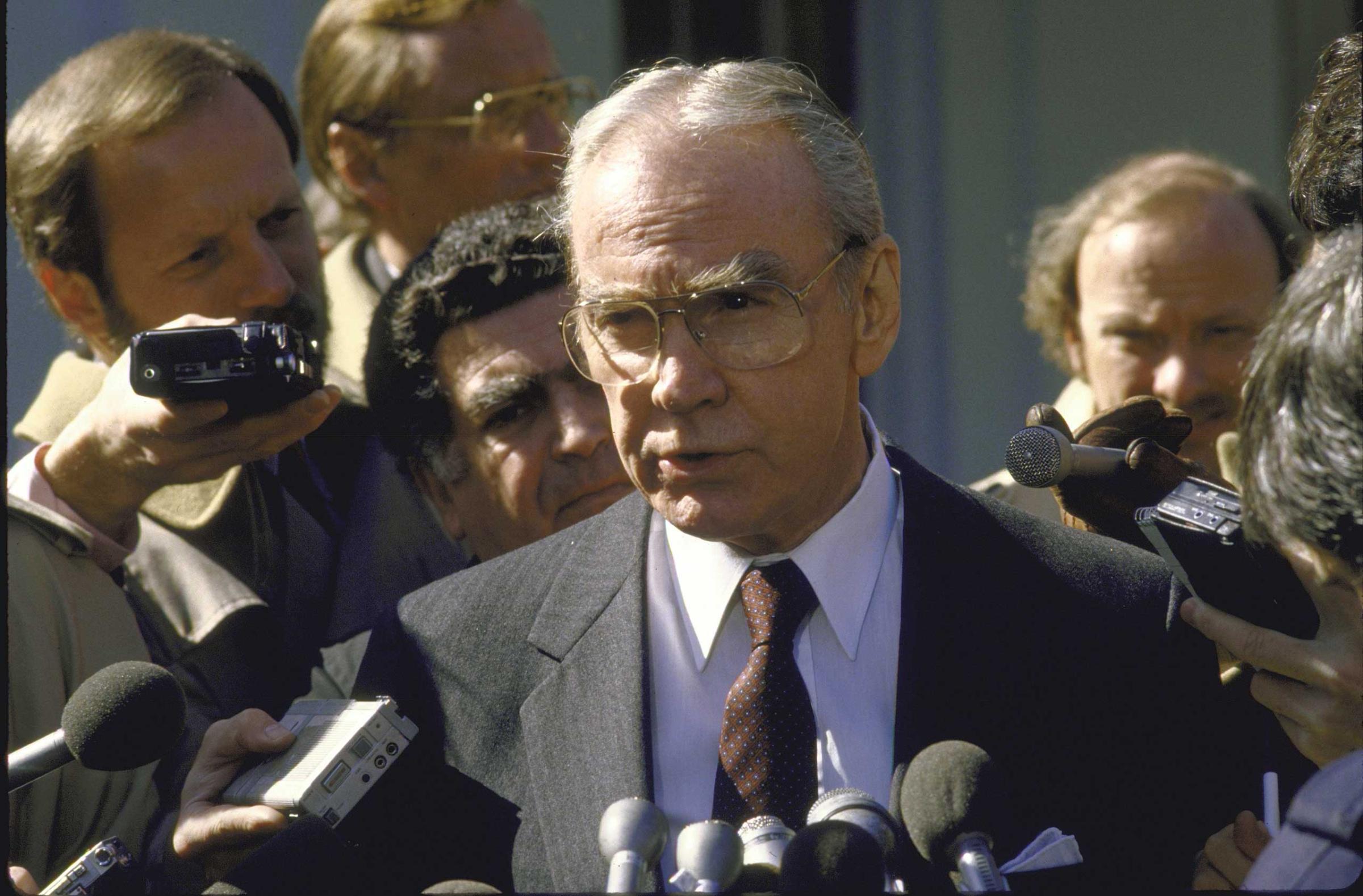
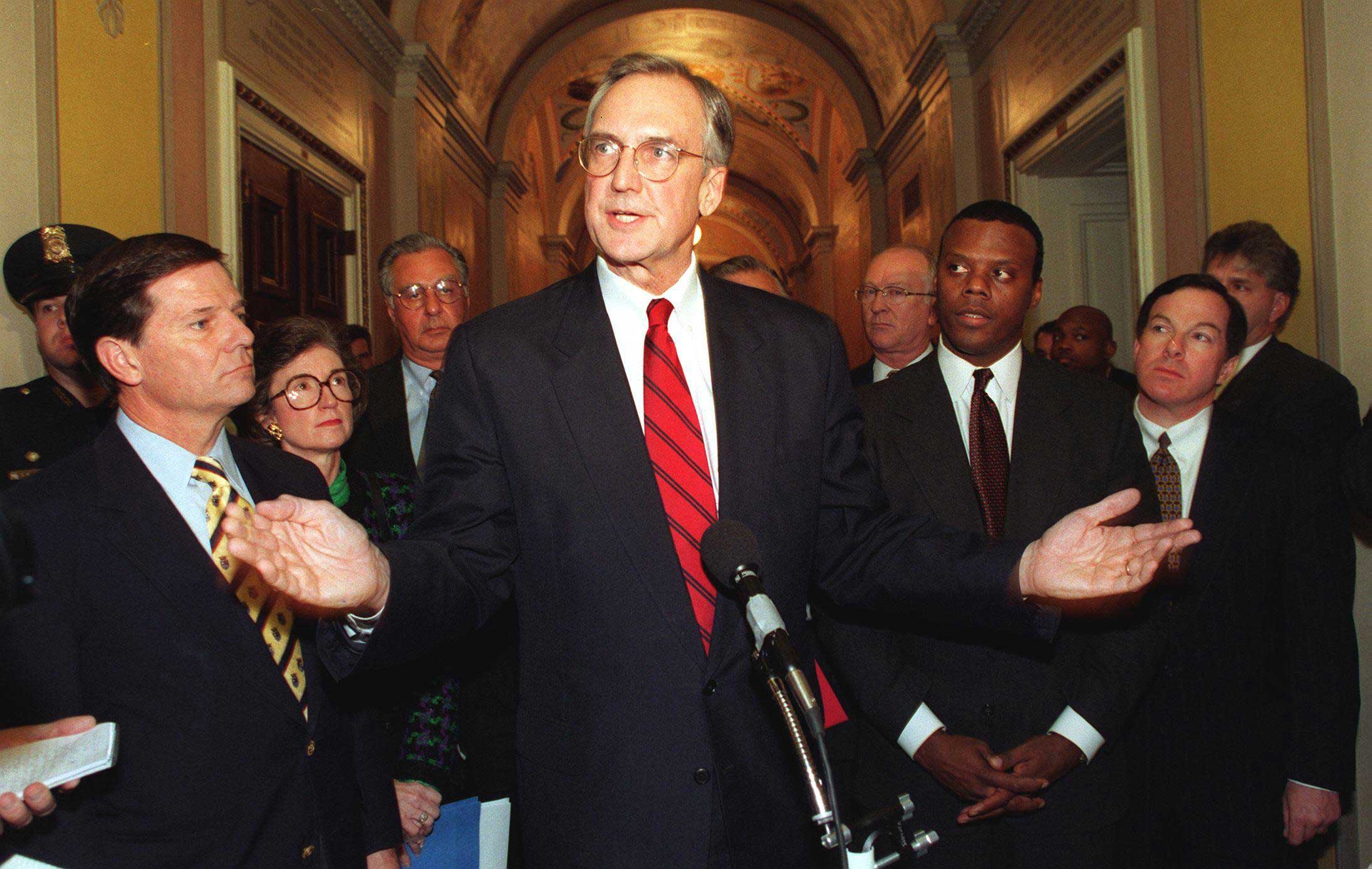
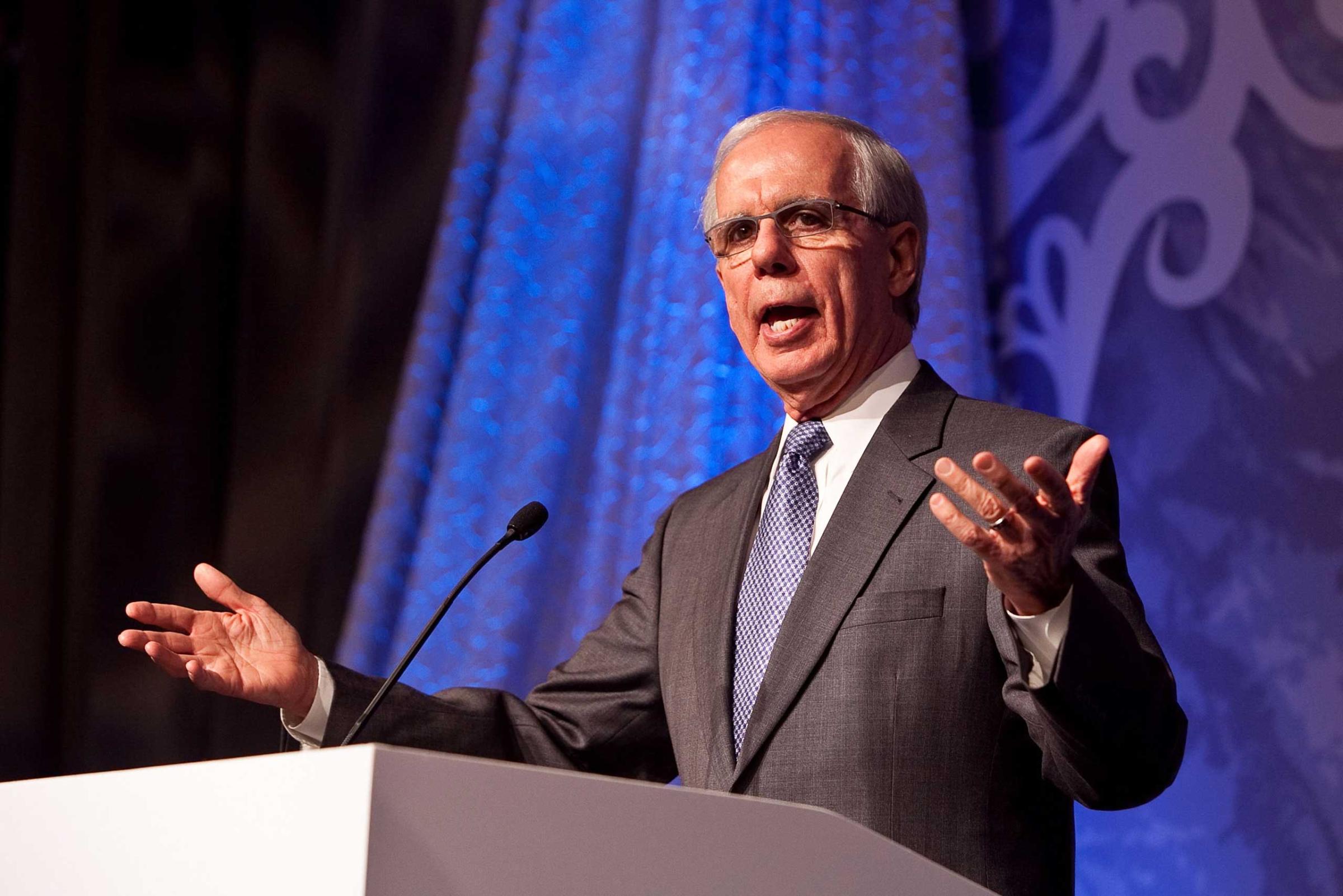
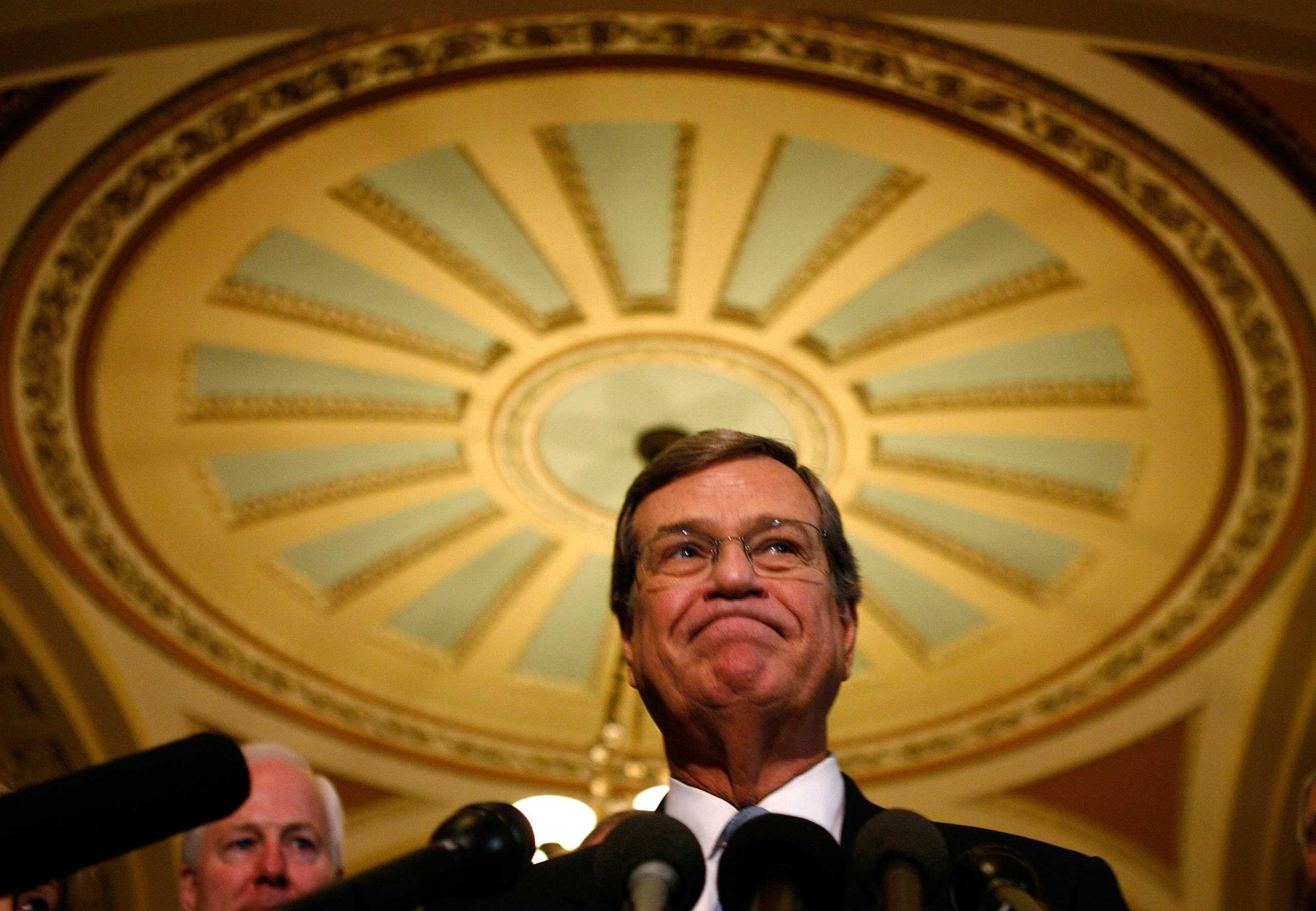

More Must-Reads from TIME
- Why Trump’s Message Worked on Latino Men
- What Trump’s Win Could Mean for Housing
- The 100 Must-Read Books of 2024
- Sleep Doctors Share the 1 Tip That’s Changed Their Lives
- Column: Let’s Bring Back Romance
- What It’s Like to Have Long COVID As a Kid
- FX’s Say Nothing Is the Must-Watch Political Thriller of 2024
- Merle Bombardieri Is Helping People Make the Baby Decision
Contact us at letters@time.com